

The longevity revolution is reshaping our world, lifespans have nearly doubled in a century, and the global 60+ population is soon reaching 2 billion: A $trillion-scale economic transformation demanding bold new strategies in workforce participation, capital investment, and urban infrastructure. Sovereign Wealth Funds and private equity are key to funding this future, where public-private-philanthropic partnerships can position the region as a global hub for age-inclusive innovation. Dive into the op-ed authored by Kearney’s Partner, Javier Herrera to discover how this revolution will redefine economies and how you can lead the way.
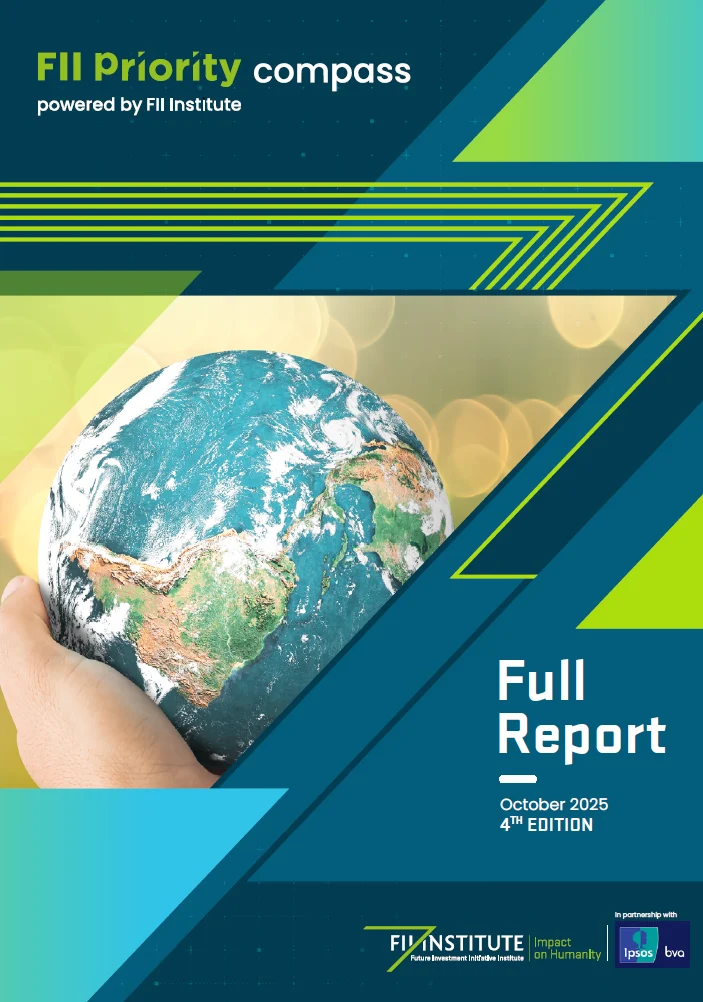
The Future Investment Initiative (FII) Institute, in partnership with Ipsos, has released the 4th edition of FII PRIORITY Compass report, a landmark global study capturing the hopes, fears, and demands of more than 60,000 people across 32 countries, representing two-thirds of humanity.
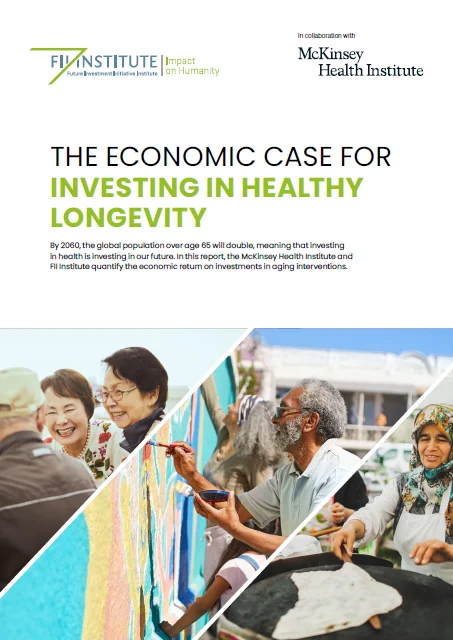
By 2050, the global population over age 65 will double, meaning that investing in health is investing in our future. In this report, the McKinsey Health Institute and FII Institute quantify the economic return on investments in aging interventions.
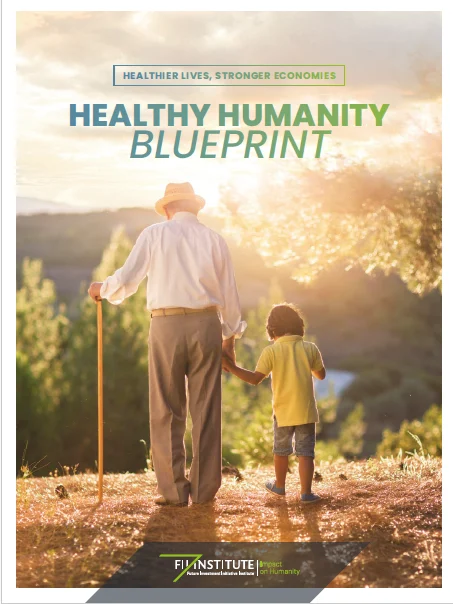
The Healthy Humanity Blueprint reimagines global well-being, shifting from treating illness to investing in lifelong health. By promoting prevention, early screening, and equitable access, it calls for united action across sectors to close health gaps and drive healthier populations and stronger economies.
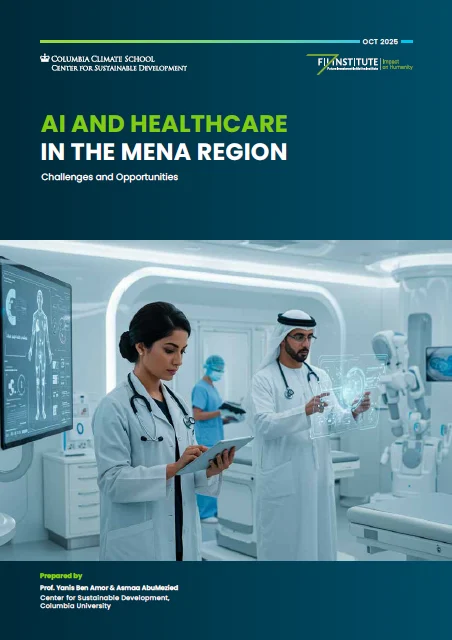
This report examines AI adoption across the MENA region, highlighting significant variation between countries with Gulf states leading and others facing barriers. Focusing on policy, digital infrastructure, workforce capacity, and implementation, it identifies key challenges such as fragmented data, unclear governance, and workforce gaps.
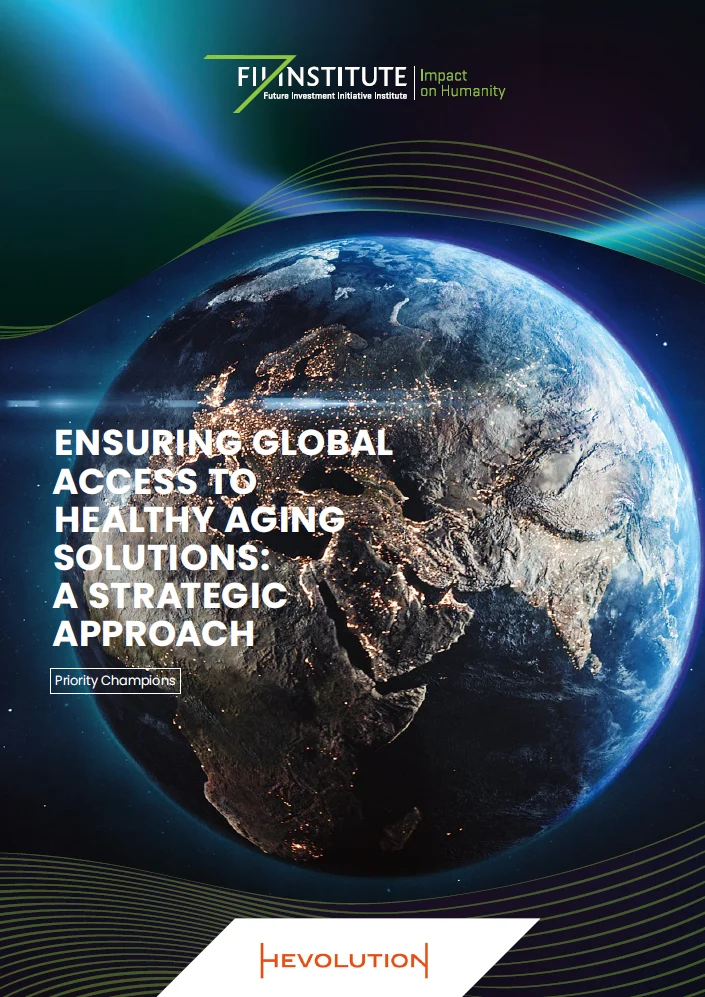
The priority champion report in collaboration with Hevolution highlights the urgent need to enhance healthspan as the global population ages, with projections indicating over 2 billion individuals over 60 by 2050.

Discover how groundbreaking innovations are transforming the fight against preventable diseases like tuberculosis and malaria, which claimed 1.85 million lives in 2023.
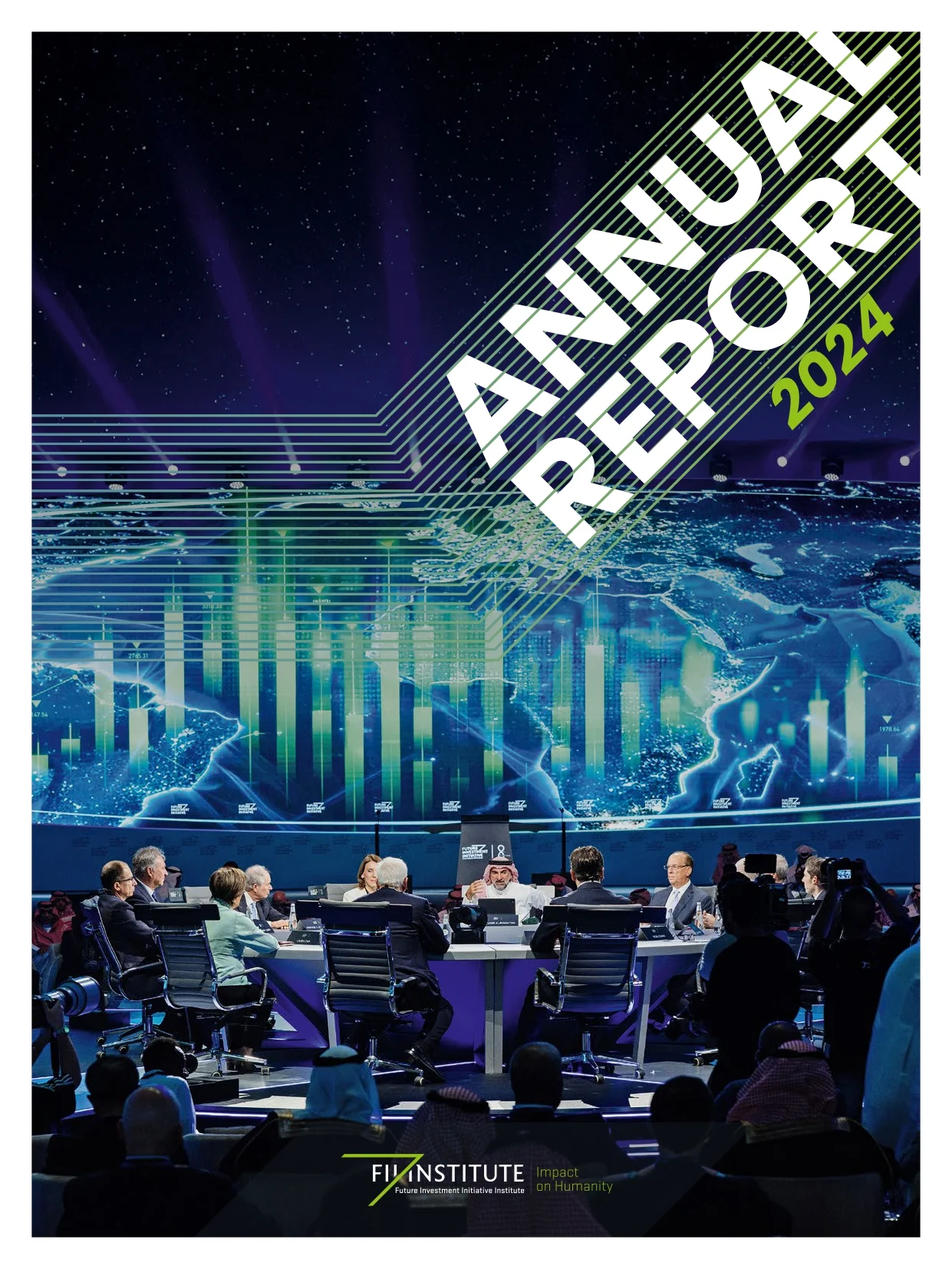
The FII Institute's Annual Report 2024 highlights its unwavering commitment to creating a sustainable future through impactful initiatives.
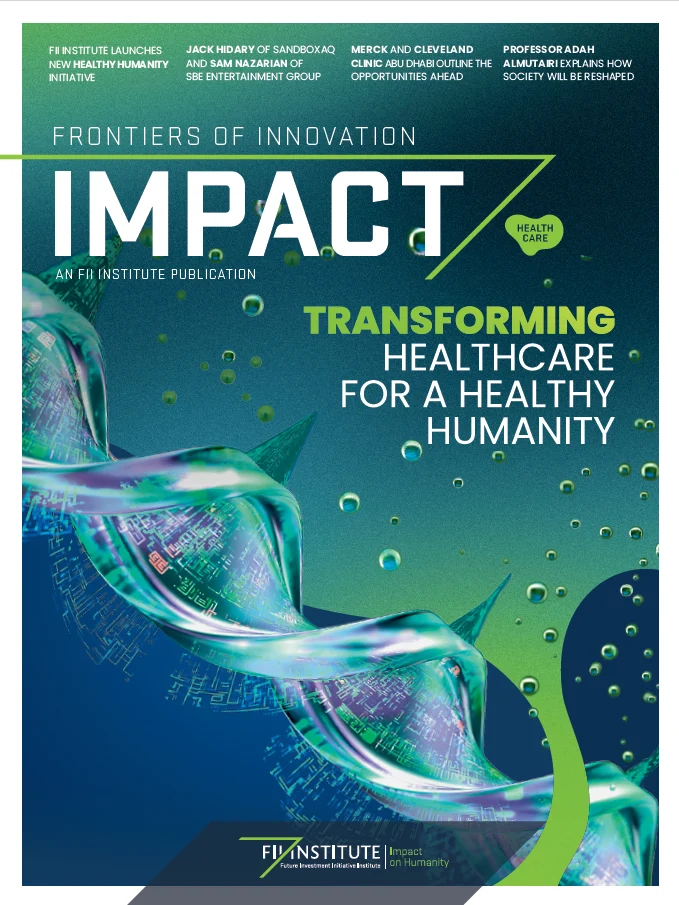
The FII Institute's Healthy Humanity initiative emphasizes the urgent need for preventive healthcare, innovation, and equity to address global health challenges. By harnessing advanced technologies like AI and quantum computing, the initiative aims to enhance early disease detection, improve access to diagnostics, and promote healthier lifestyles, ultimately benefiting economies and societies.
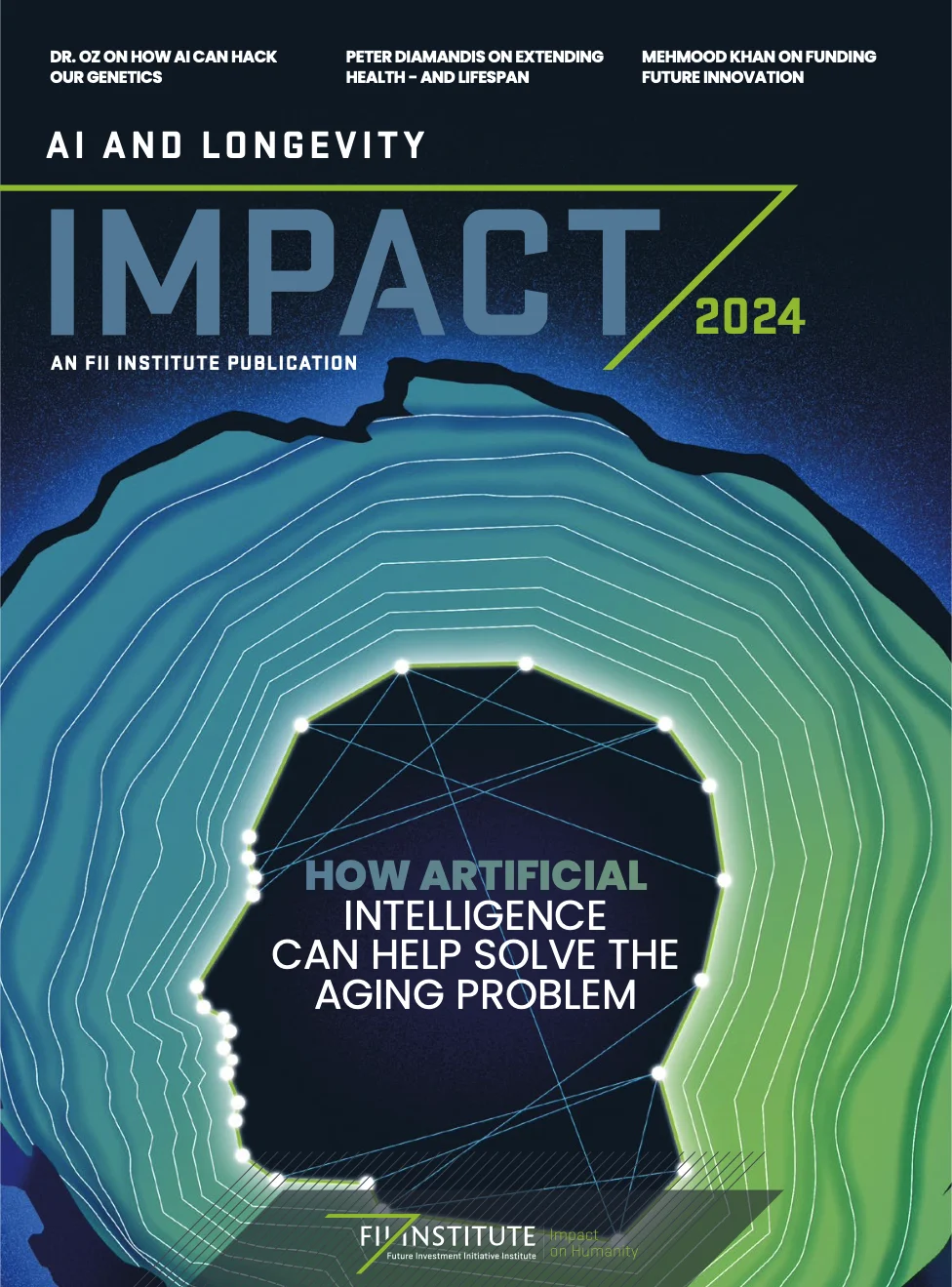
The AI & Longevity Impact report highlights the transformative role of AI in healthcare, emphasizing its potential to enhance drug discovery, personalize medical treatments, and improve understanding of complex biological systems.
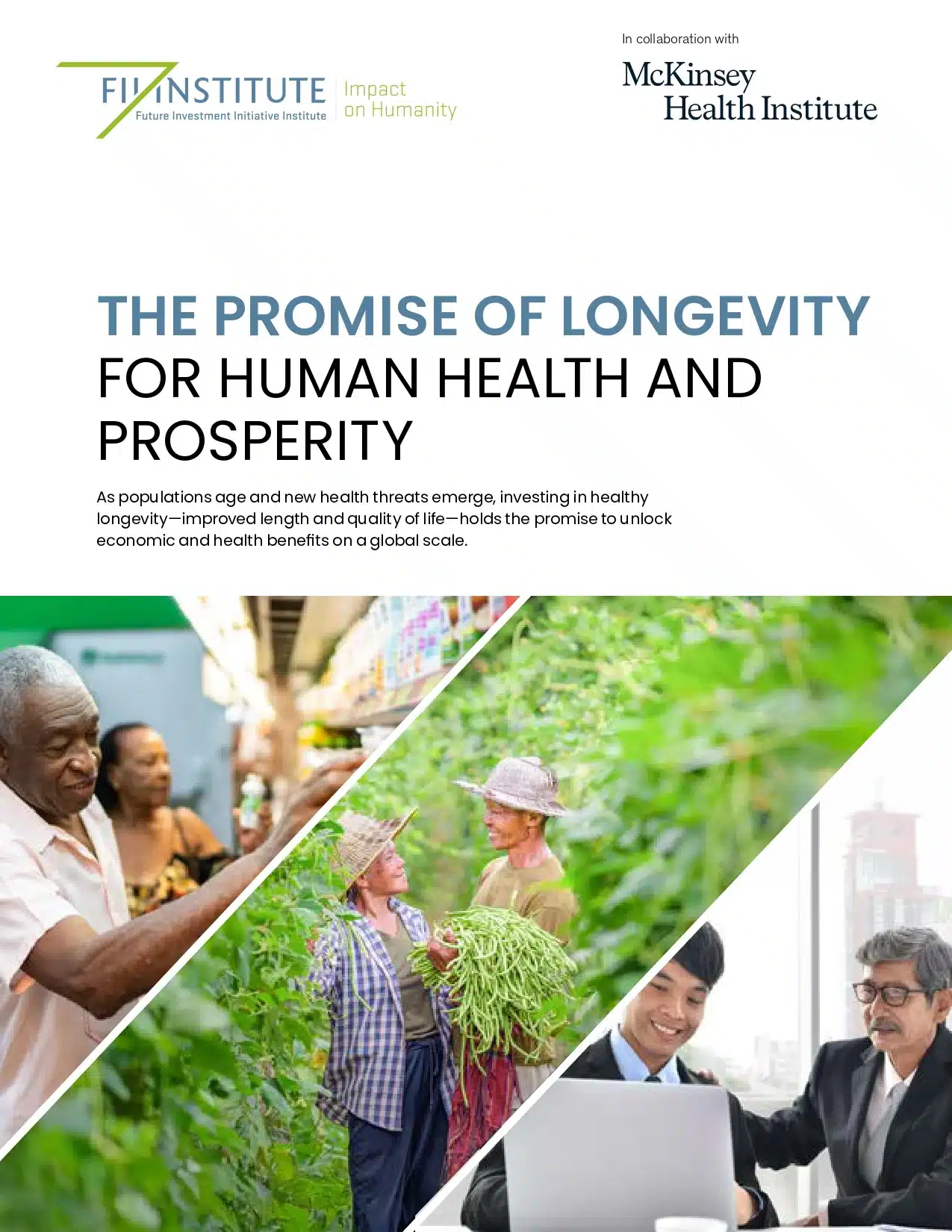
The FII Healthy Longevity Compass, by FII Institute in collaboration with McKinsey Health Institute (MHI), explores how strategic investments in longevity would enhance quality of life, stimulate economic growth, and promote a more equitable society.

The oped piece sheds light on the urgent need for investment in quantum technology and workforce development, as well as the importance of collaboration between academia, government, and industry to harness quantum computing's capabilities effectively.
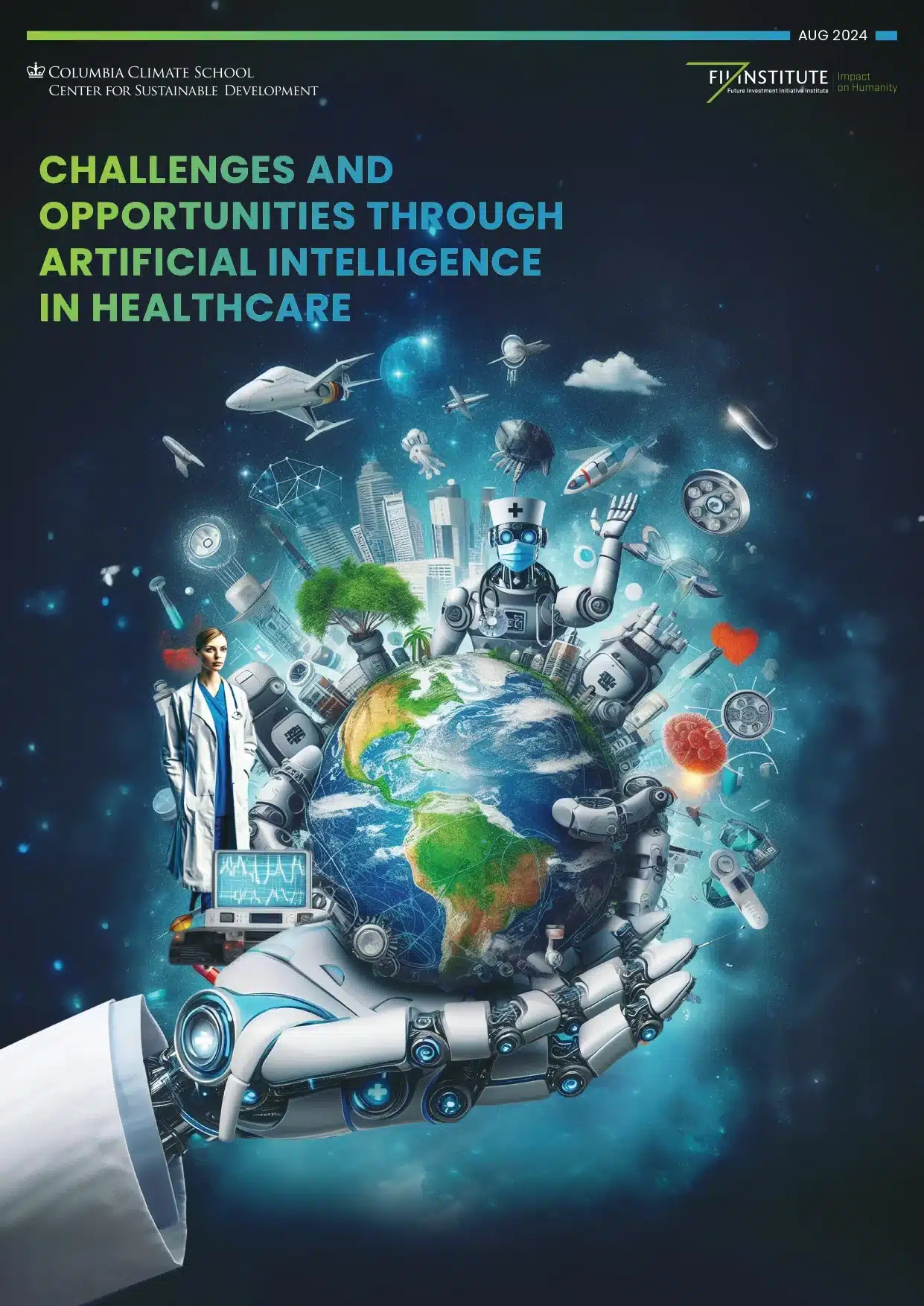
It explores the transformative impact of Artificial Intelligence (AI) in healthcare. The publication delves into the opportunities AI presents for improving diagnostics, personalizing treatments, and enhancing operational efficiency, while also addressing challenges such as workforce shortages, rising costs, and ethical concerns.
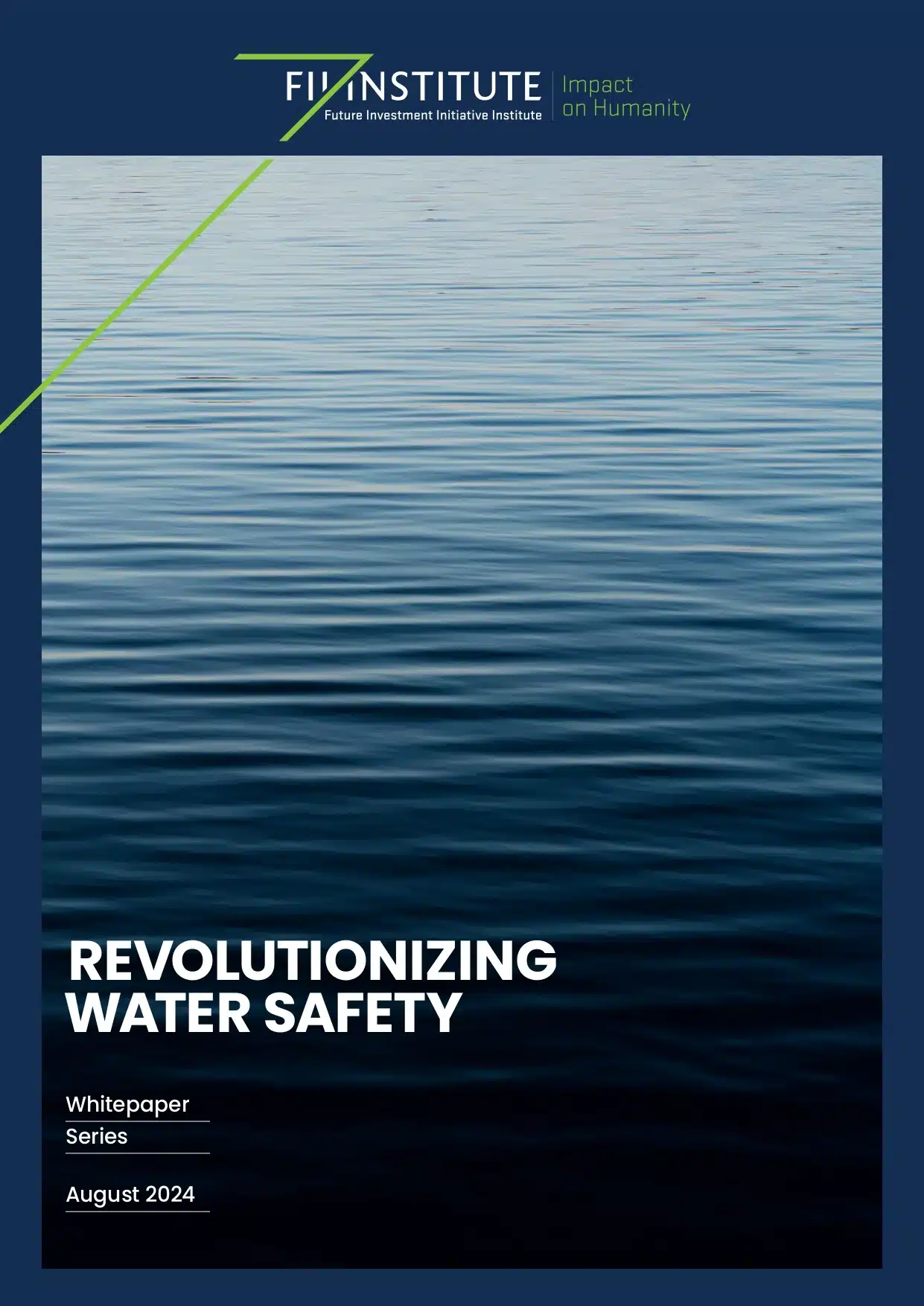
Discover the groundbreaking insights from our latest report, "Revolutionizing Water Safety," in partnership with Hydroquo+. This comprehensive analysis highlights the urgent need for innovative solutions to combat the global water crisis, focusing on the transformative potential of real-time monitoring technologies like the Autonomous Microbiological Alert Sensor (AMAS). Join us in exploring how these advancements can enhance water safety, protect public health, and ensure sustainable access to clean water for all.
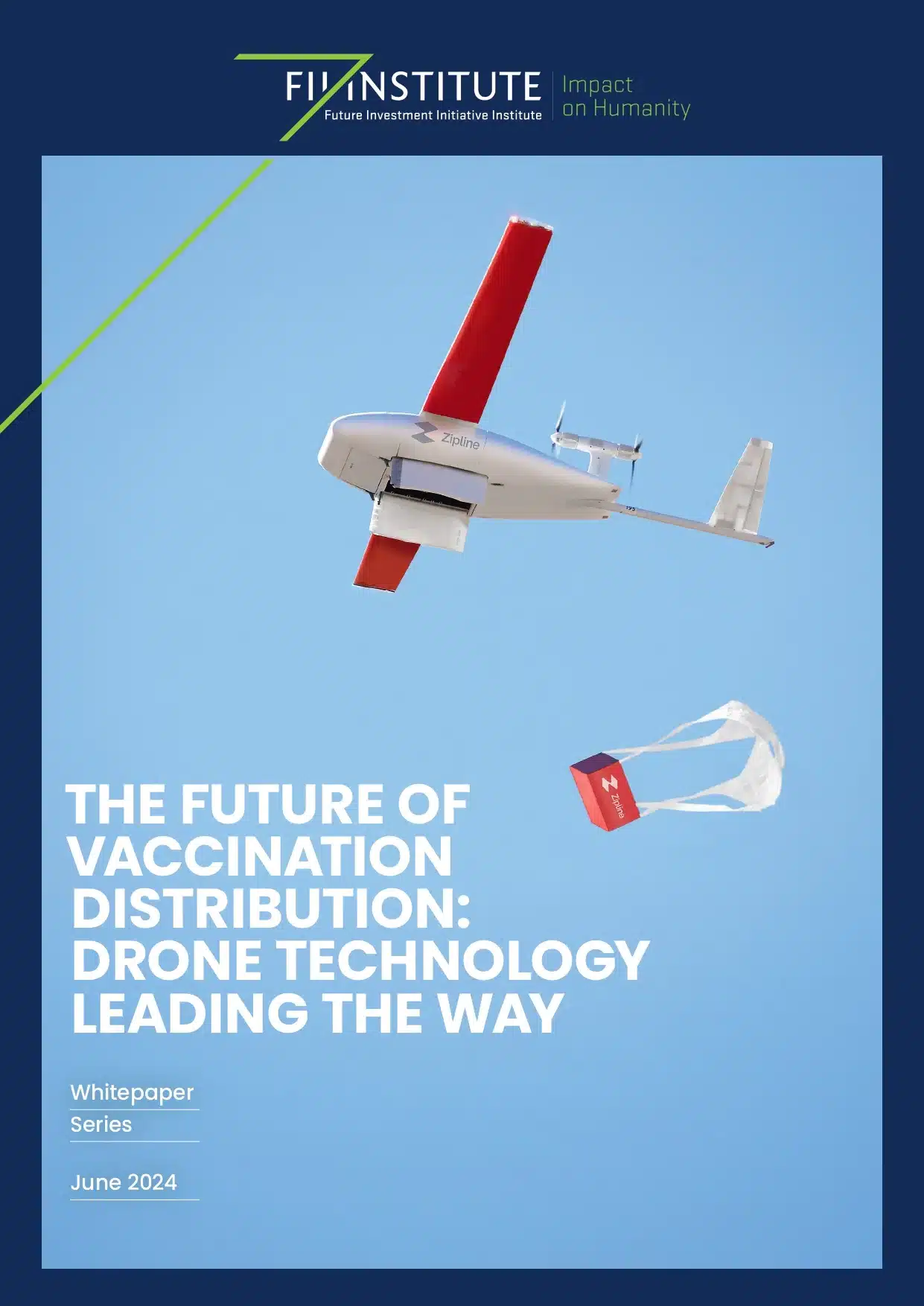
We are thrilled to share the latest groundbreaking whitepaper report in collaboration with Gavi, Rwanda, the UPS Foundation and Zipline, that dives deep into the future of vaccination distribution, highlighting the pivotal role of drone technology in revolutionizing healthcare delivery worldwide.
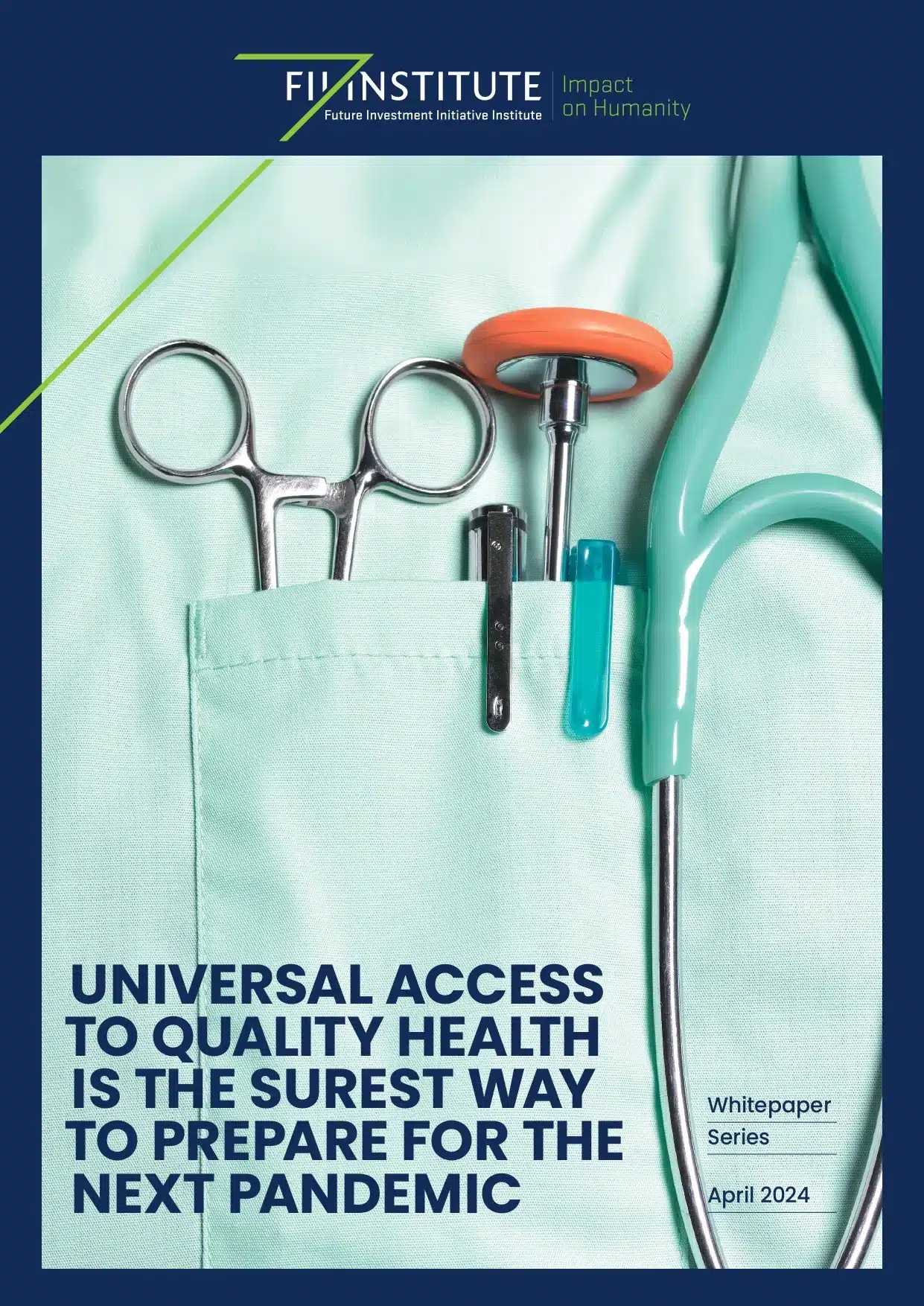
Explore our publication that delves into the critical learnings from the COVID-19 pandemic and its unprecedented impact on our world. This compelling piece sheds insights on the undeniable connection between our health and the global dynamics that govern it, emphasizing the vital need for comprehensive health systems capable of preventing disease outbreaks from escalating into global crises.
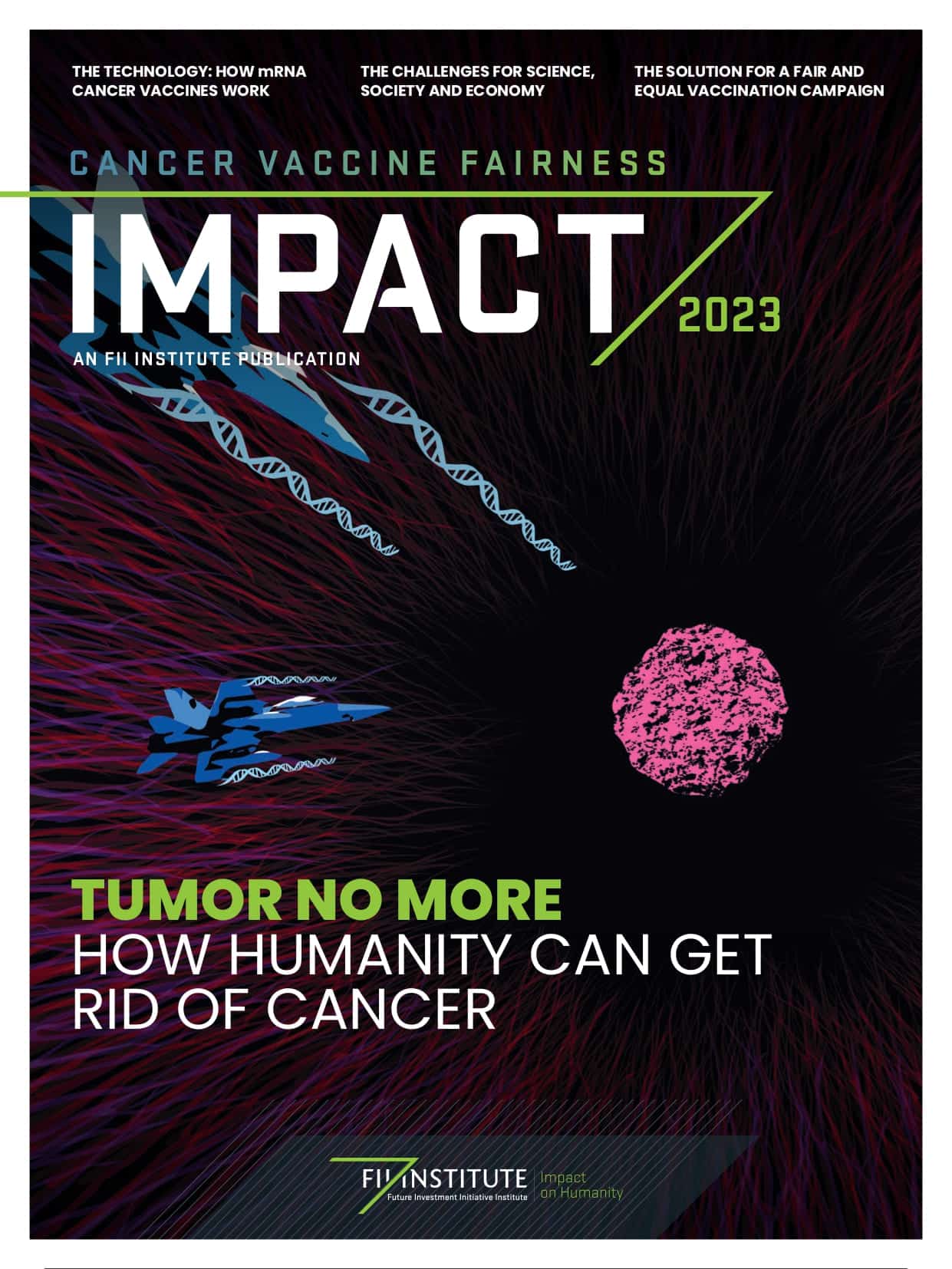
This report examines the potential impact and challenges of cancer vaccines, proposing a debate about the best and most equitable way to put an end to cancer. It includes illustrations by Daniel Hertzberg, and discusses the need for studies with clearly defined plans to treat a defined number of patients, as well as the potential of mobile production facilities for mRNA.
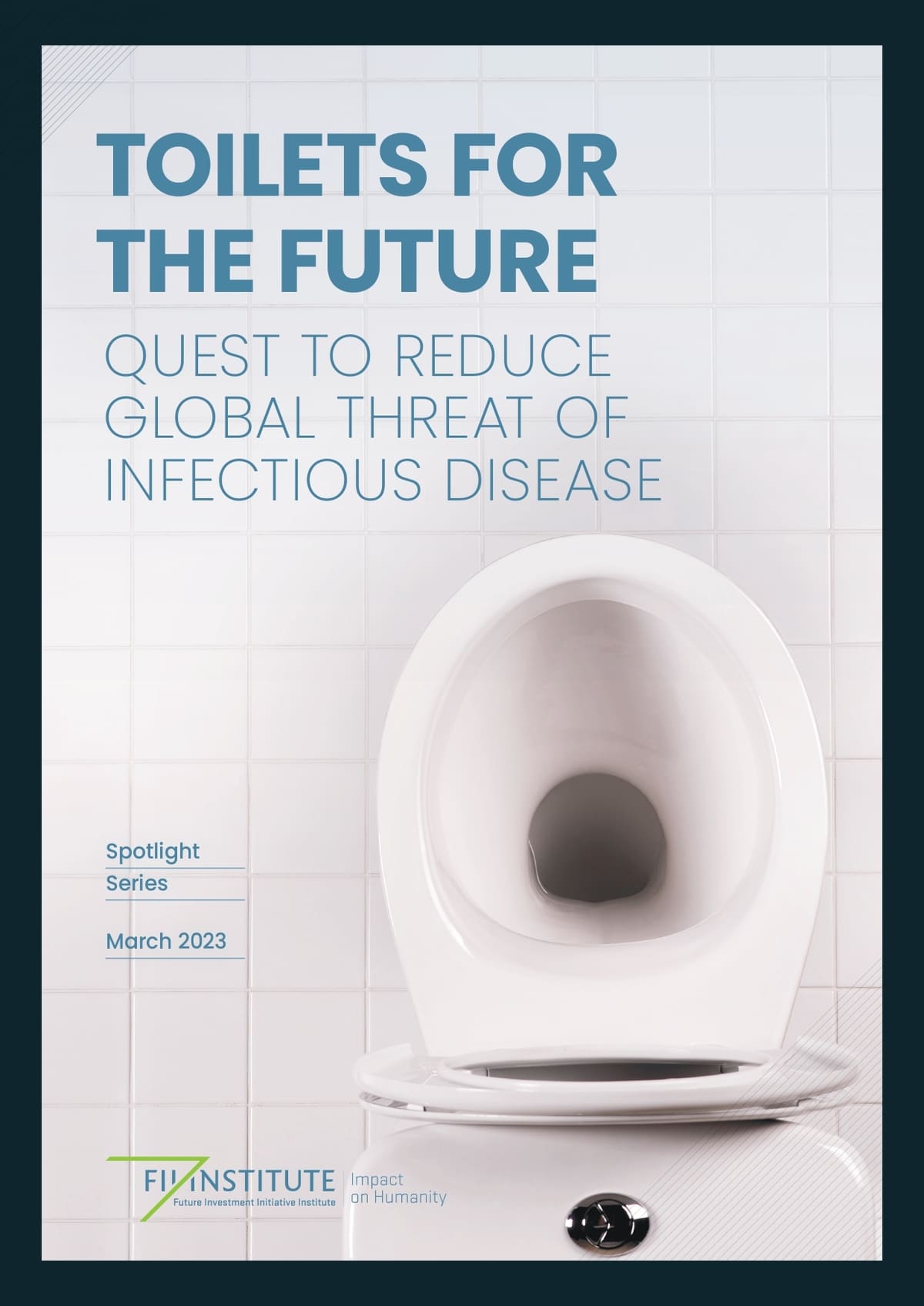
Discover the future of sanitation and its impact on global health in our comprehensive Spotlight Series Report, “Toilets for the Future.” This enlightening resource delves deep into the past, present, and promising future of sanitation systems worldwide, emphasizing reducing the global threat of infectious diseases. The report explores critical topics such as: The dire current […]
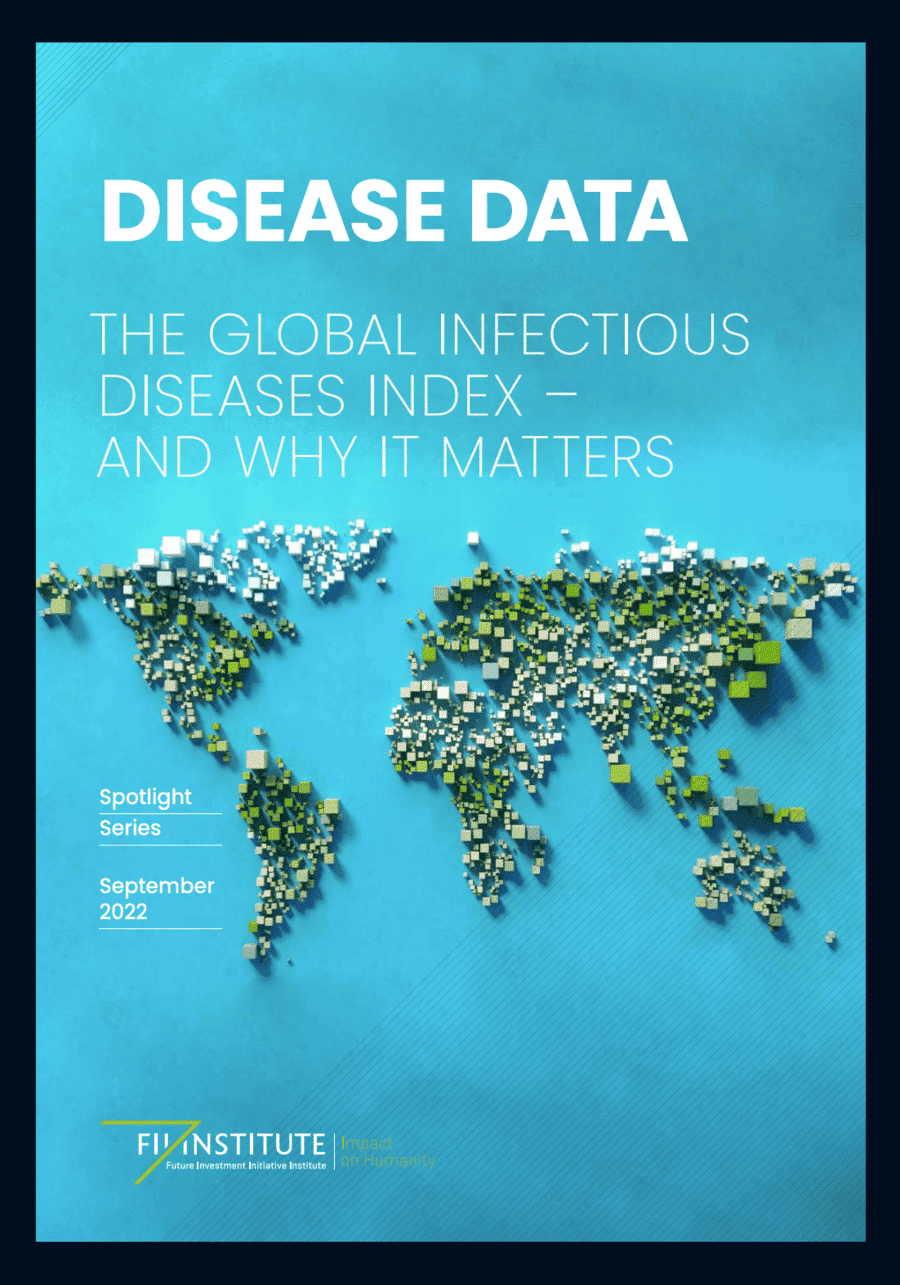
IN SEPTEMBER 2021, THE FII INSTITUTE launched its Global Infectious Disease Index (GIDI), providing valuable information to help health professionals and the general public assess the readiness and vulnerability of global healthcare systems in tackling endemic and emerging epidemic diseases. Since its launch, GIDI has acquired a reputation as a scientifically rigorous and credible resource, unique in its field, that serves as a transparent metric and a unified source of truth for anyone with an interest in infectious diseases.
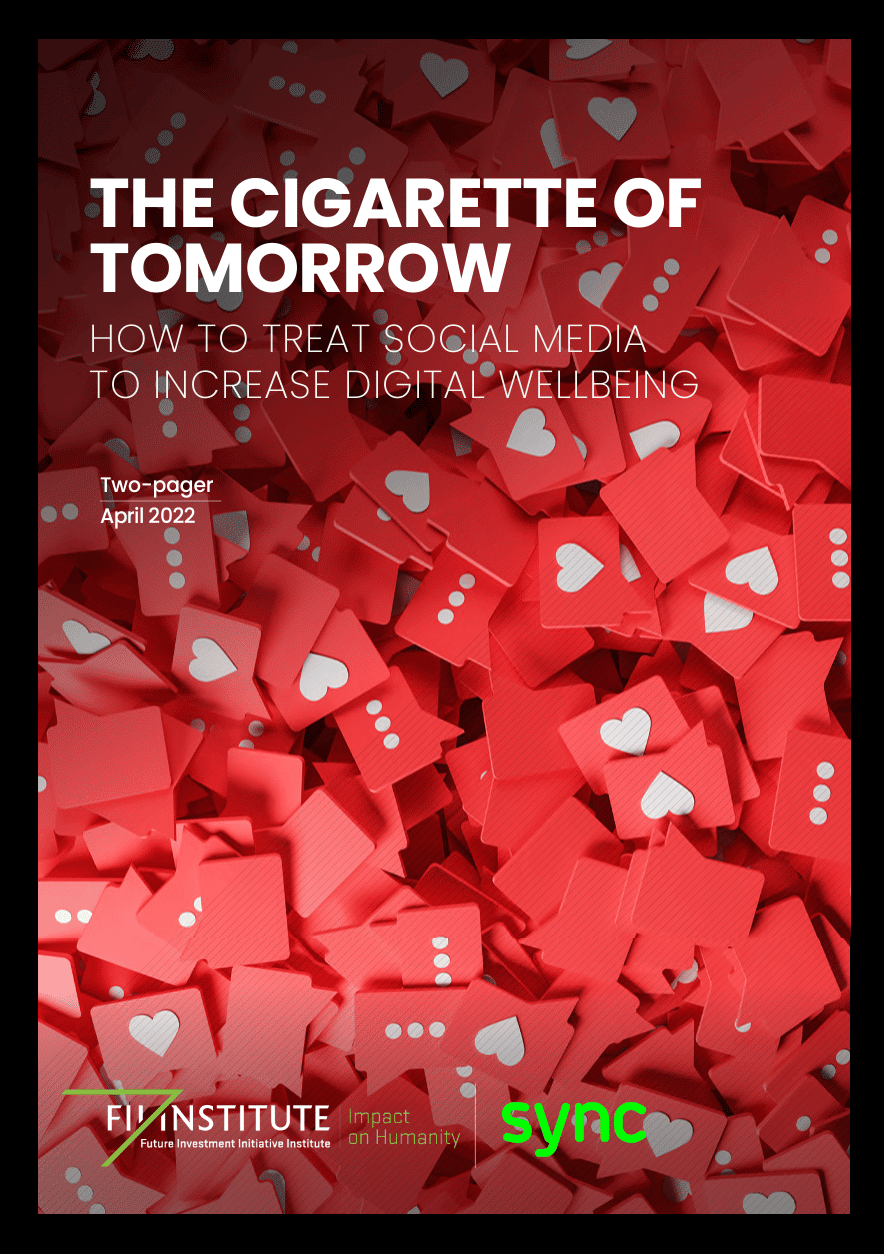
Cyber-Addiction and Cyber-Bullying pose serious risks for the health and wellbeing of the individual – especially for children and adolescents. How can society reduce these risks and increase digital wellbeing?

The Covid-19 pandemics offered a great opportunity for the Global community to practice international solidarity. But the opportunity was missed, the multi-national institutions have failed to ensure equitable vaccine access. The prevailing “My-interest-first” policies have reduced the overall efficacy of the vaccination campaign and damaged the trust in global solidarity. International health policy needs a shift to humanity.
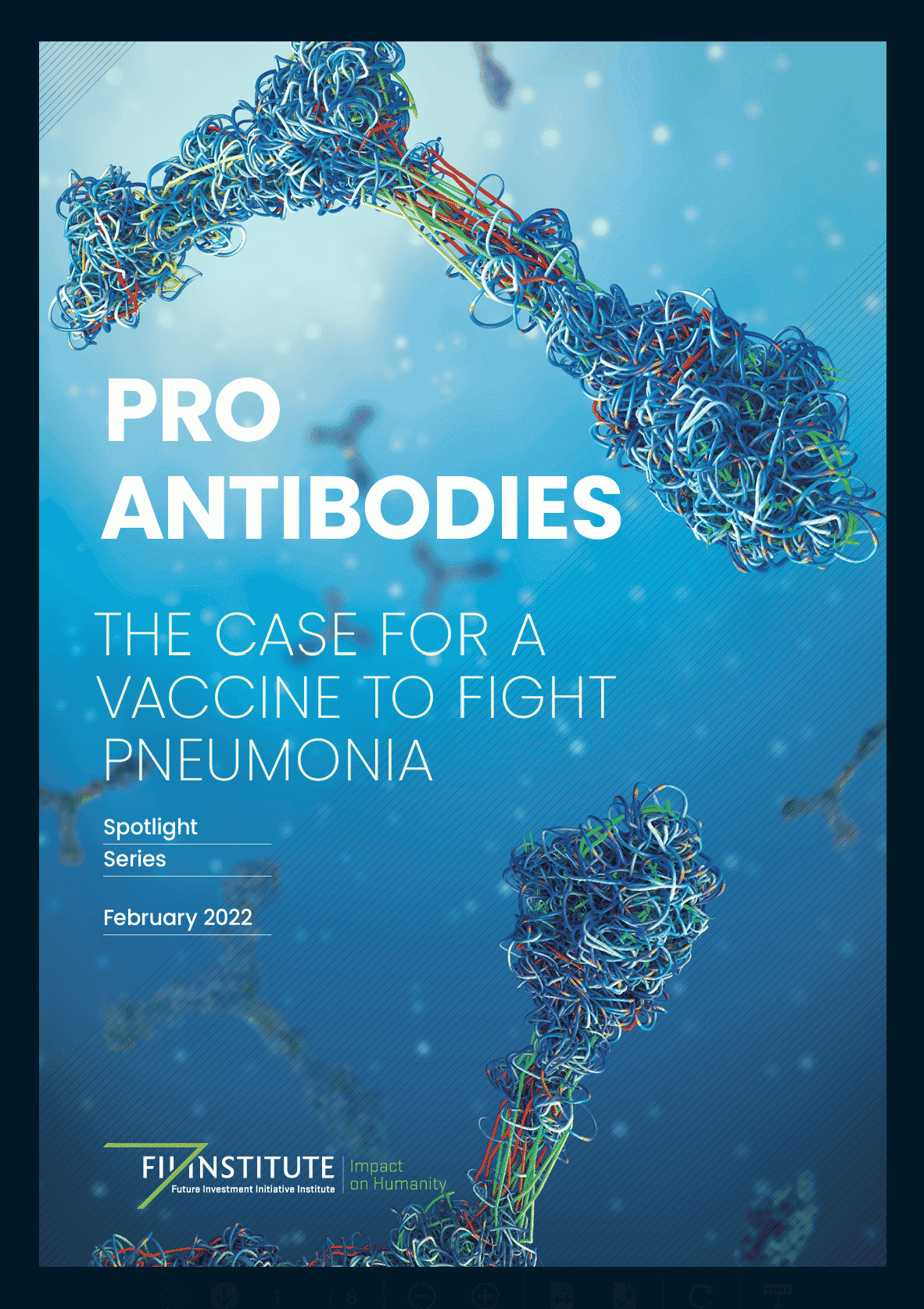
Pneumonia is, in most cases, a curable or preventable disease. But it remains the leading infectious cause of death globally among children under the age of five, disproportionately affecting the most deprived and marginalized. An effective and affordable vaccine is the best way to tackle this global challenge.
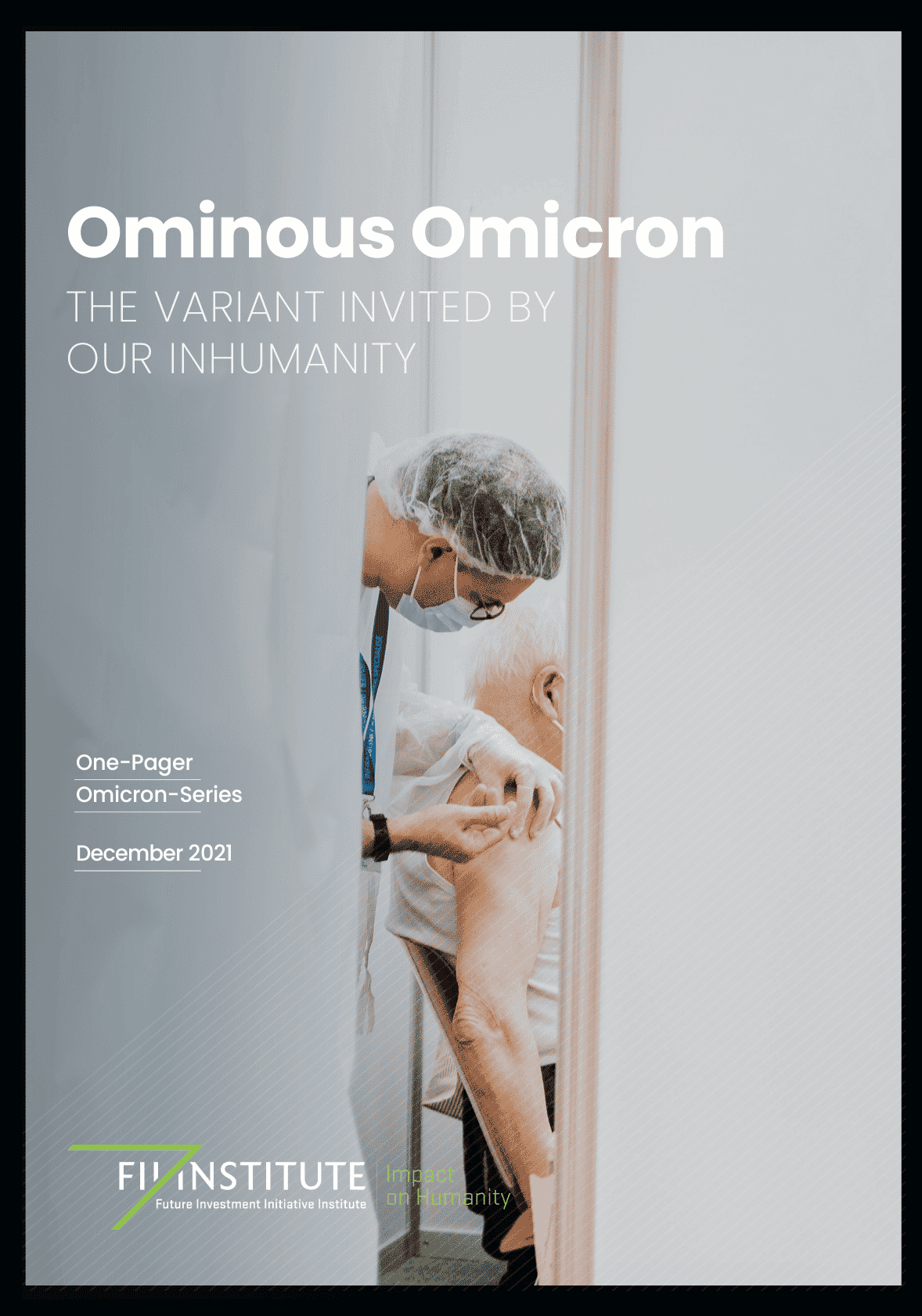
Just as the world began glimpsing the light at the end of the tunnel of an arduous battle against the COVID-19 pandemic - bolstered by the development of several highly efficient vaccines - a new variant of “high concern” as designated by WHO has emerged. And, while the debate continues to rage about the origins of SARS-CoV-2 and how much of it, if any, was human influenced, there should be no doubt that humans shoulder the lion’s share of the blame for the emergence of the Omicron variant.

As previously witnessed with the major outbreaks of West Africa Ebola virus in 2014, Middle East Respiratory Syndrome (MERS) in 2012, and Zika in 2016, emerging infectious diseases (EIDs) have too often been neglected or perceived as distant problems. Despite repeated warnings of the increasing threat of epidemics and pandemics, both public and private sector actors have repeatedly failed to prioritize the forward-looking investments, systems, and structures that are necessary to ensure that vaccines, therapeutics, diagnostics, and other medical countermeasures and lifesaving tools are ready to deploy right at the outset of an outbreak to curb the spread of disease before it becomes a global health emergency.
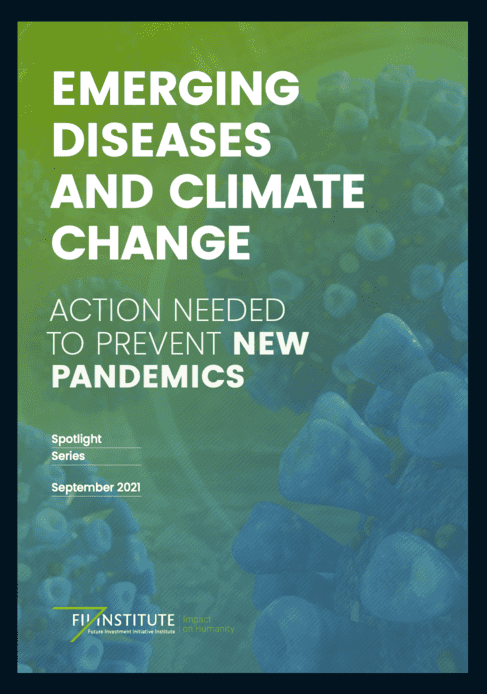
Climate change is a growing factor in the emergence of infectious disease. We need decisive action now to limit global warming, more investment in research to improve our understanding, and “One Health” policies that consider together the well-being of people, animals and ecosystems.
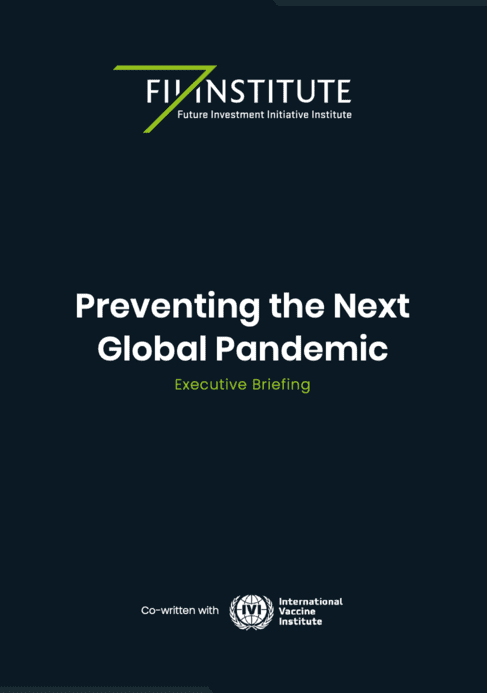
Tuberculosis (TB) is among the world’s most lethal diseases, killing 1.4 million people each year, equivalent to more than 80% of the victims of COVID-19 in 20201 .The majority (66%) of new cases come from 8 developing countries2, but the threat of a global pandemic is real as cases of drug-resistant TB rise3 with a 10% increase between 2018 and 20194. As we emerge from the ravages of the COVID-19 pandemic, we must learn from our mistakes and act now to develop an effective TB vaccine before TB brings tomorrow's global health catastrophe.
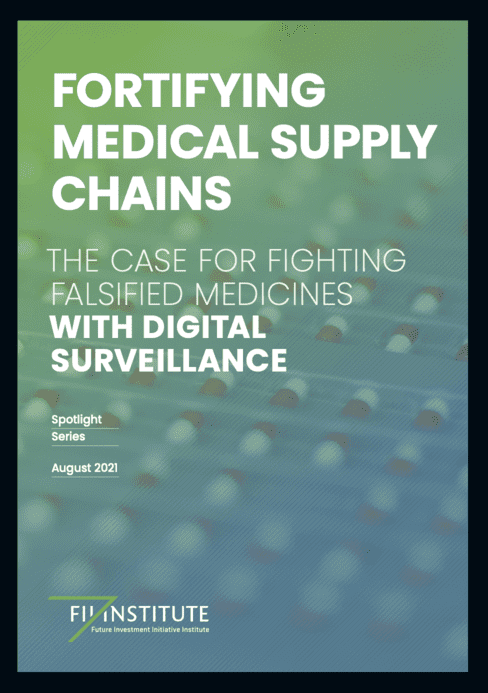
Substandard and falsified medicines are a major threat to public health and responsible for hundreds of thousands of deaths each year – mostly in low- and middle-income countries. Digital, AI-based control systems throughout the supply chain and at end-user level can help to curb the activities of the global counterfeit crime networks.
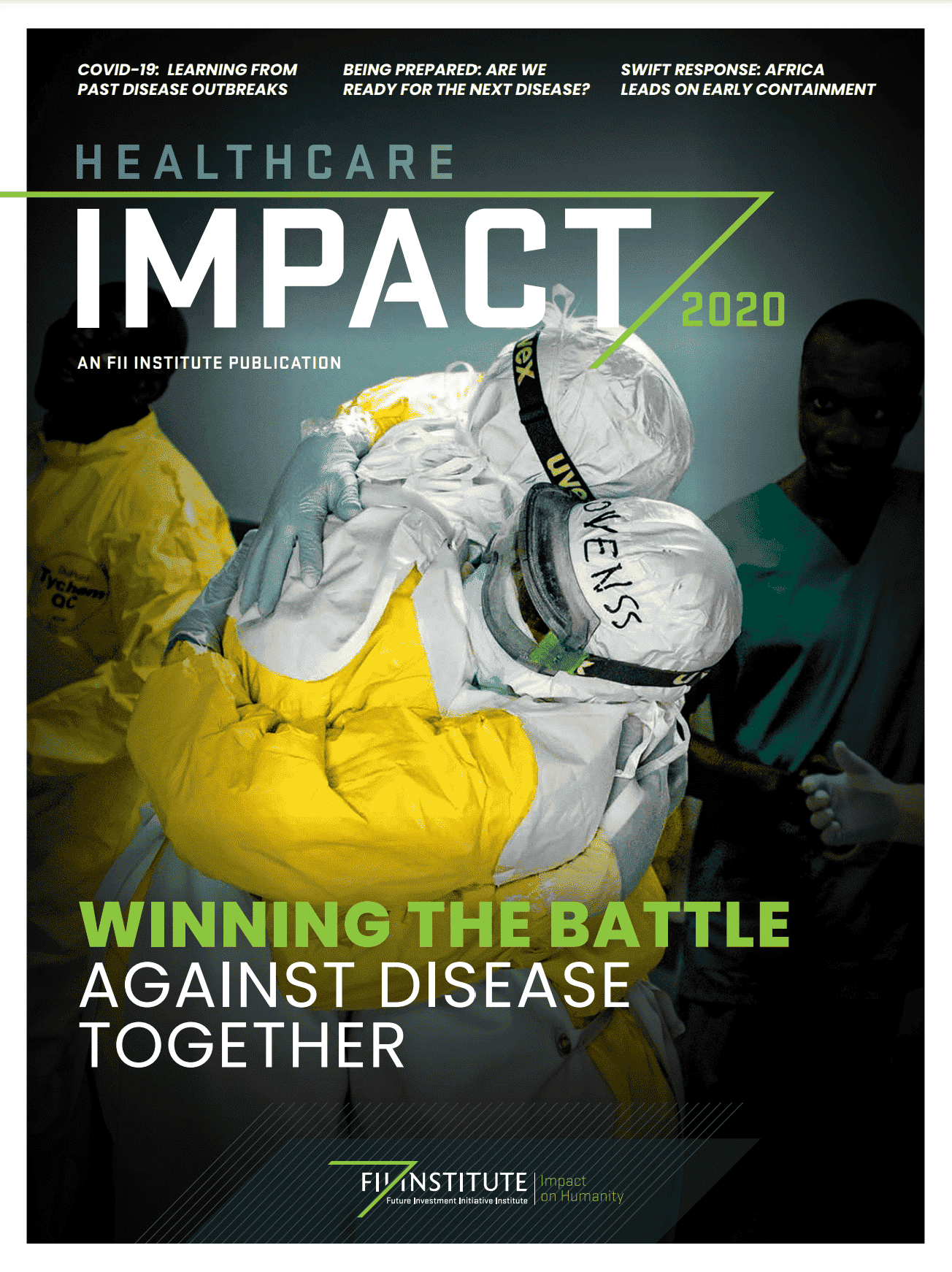
A report series as we face one of the greatest global challenges in recent history. Covid-19 is unprecedented in its scale, impact, and speed. At the same time, we may have a unique opportunity to shift our thinking on key health concerns, drive an exceptional level of global collaboration, and support the development of ground-breaking technologies.
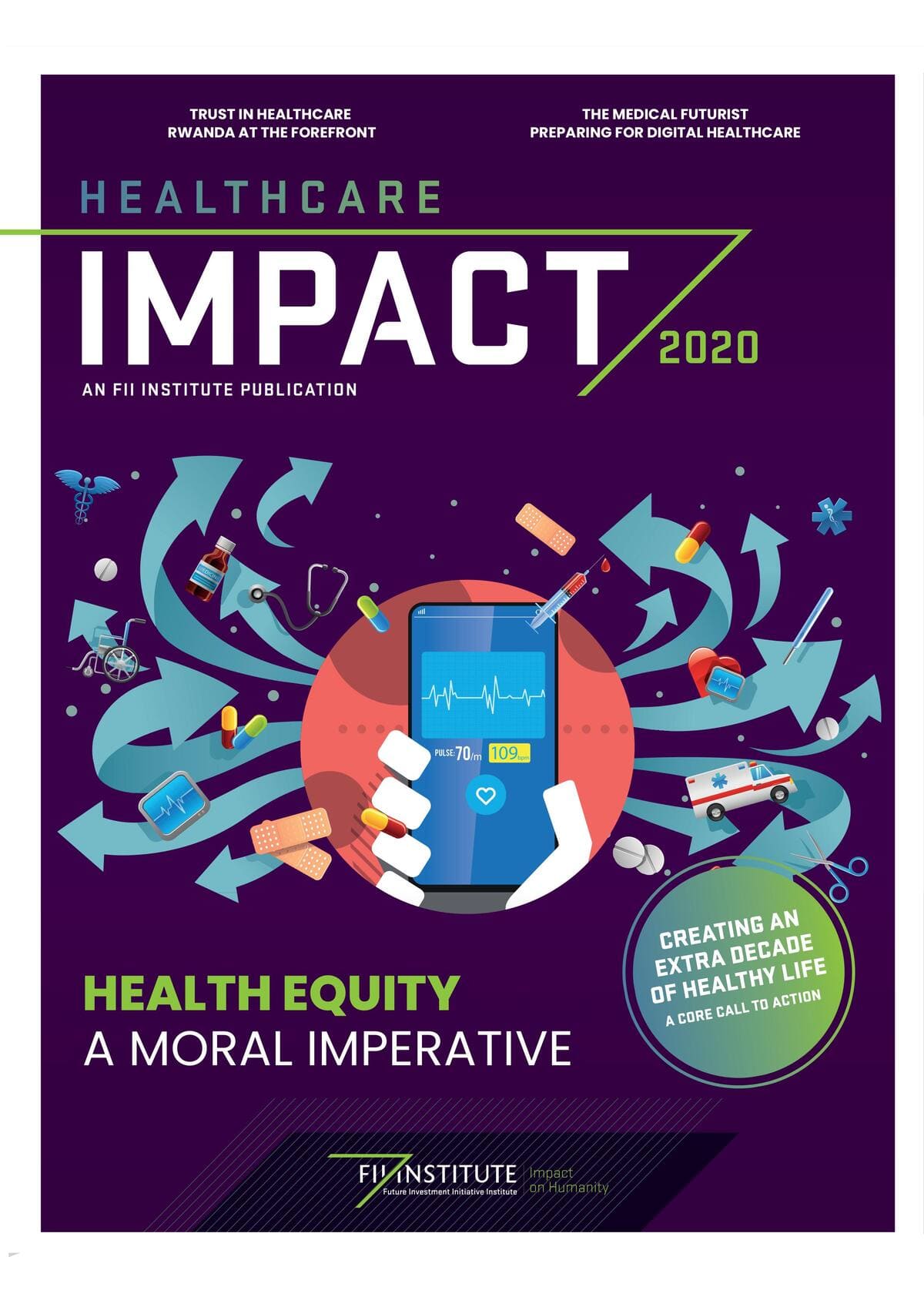
The “Healthcare Impact report 2020” published by the FII Institute emphasizes health equity as a moral imperative. There’s a stark global health inequity exhibited by the vast difference in life expectancy depending on where one is born. Additionally, a double burden arises when healthcare costs exceed a certain percentage of household income, forcing difficult decisions […]